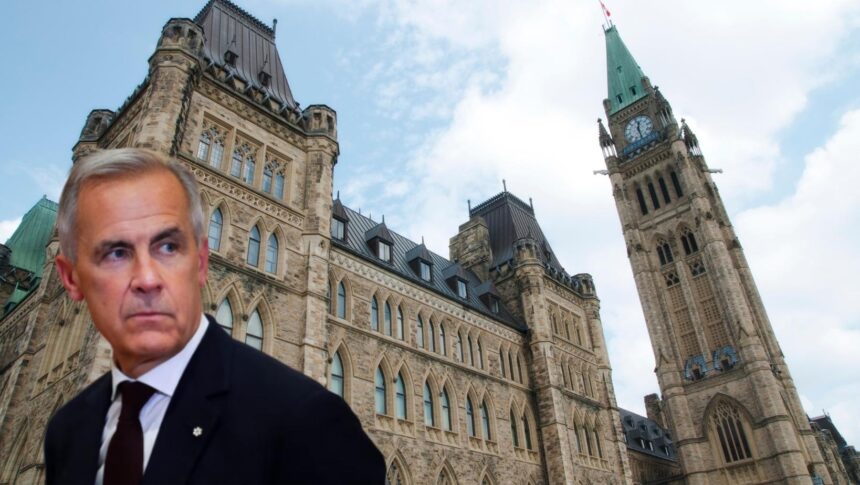Prime Minister Mark Carney used the National Day for Truth and Reconciliation to press for urgency on commitments to Indigenous Peoples, telling a crowd on Parliament Hill that the country must confront the harms of residential schools and “match remembrance with responsibility.”
“We reflect on the devastating legacy of the residential school system,” Carney said at the Remembering the Children commemoration in Ottawa.
The Sept. 30 event, produced by the National Centre for Truth and Reconciliation with APTN and CBC/Radio-Canada, brought survivors, families, Elders, leaders and Canadians in orange shirts to the capital for a 90-minute national broadcast.
The partners described the gathering as a multilingual commemoration intended to honor survivors and those who never returned home.
Carney’s prepared statement framed reconciliation as a long effort that requires work in health care, housing, education and economic opportunity, and reiterated federal support for searches at former residential school sites. The Prime Minister’s statement on the National Day for Truth and Reconciliation also pledged continued action on the Truth and Reconciliation Commission’s Calls to Action, the Calls for Justice from the National Inquiry into Missing and Murdered Indigenous Women and Girls, and the implementation of the United Nations Declaration on the Rights of Indigenous Peoples Act.
“As a government and as a people, we match remembrance with responsibility,” the statement read.
The Governor General, Mary Simon, the first Indigenous person to hold the office, also took part and delivered remarks.
Her office had signaled she would join survivors, Indigenous leaders and dignitaries at the ceremony on Parliament Hill to help deepen public understanding of the history and lasting impacts of residential schools.
The National Day for Truth and Reconciliation, also known as Orange Shirt Day, is a federal statutory holiday established in 2021 to honor survivors and commemorate the children who were taken from their families.
It is observed annually on Sept. 30, the fifth such day since the holiday’s creation.
Government advisories encouraged Canadians to watch the Ottawa ceremony and take part in local events across the country.
Residential schools operated for more than a century, funded by the federal government and largely run by churches.
More than 150,000 First Nations, Inuit and Métis children were separated from their families and communities, a reality the Truth and Reconciliation Commission documented in thousands of survivor testimonies.
Carney’s office underscored that truth, noting the enduring effects on languages, cultures and economic outcomes that continue to shape life in Indigenous communities.
Carney’s language in Ottawa echoed the tone he has used since taking office this year, where he has tied reconciliation to economic inclusion.
His June statement on National Indigenous Peoples Day emphasized shared leadership, self-determination and Indigenous equity and co-ownership in major projects.
The message in Ottawa built on that theme while centering the human cost that made the day necessary. The commemoration on Parliament Hill was designed to be as much about listening as speaking.
Organizers highlighted survivors’ stories and the work of communities seeking to locate and memorialize unmarked and undocumented burials at former school sites.
The national broadcast was meant to draw Canadians into that ongoing search for truth, with the NCTR urging sustained attention long after the orange shirts are folded away.
Officials also pointed to support services for survivors and families, including the National Residential School Crisis Line and the Hope for Wellness Help Line, which the Prime Minister’s statement flagged for those seeking immediate assistance.
The reminder underscored that the legacy Carney called “devastating” is not confined to history but lives in the experiences of people across the country today.




















